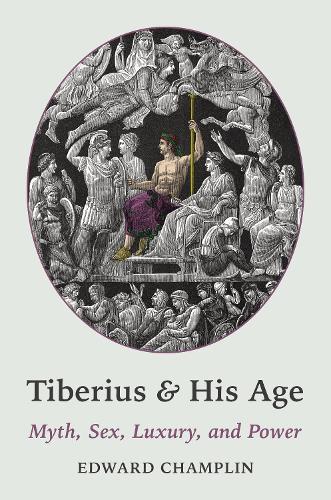
Tiberius and His Age: Myth, Sex, Luxury, and Power
(Hardback)
Publishing Details
Tiberius and His Age: Myth, Sex, Luxury, and Power
By (Author) Edward Champlin
Edited by Robert Kaster
Princeton University Press
Princeton University Press
1st March 2025
United States
Classifications
General
Non Fiction
Biography: historical, political and military
937.06092
Physical Properties
Hardback
288
Width 155mm, Height 235mm
Description
A radical new portrait of the infamous Roman emperor
Romes second emperor, Tiberius (42 BCECE 37), has traditionally been seen as a villainous hypocritetreacherous, grasping, vindictive, and depraved. But in Tiberius and His Age, Edward Champlin draws on vast and diverse evidence to show that Tiberius wasand was seen by contemporaries to berecognizably human and far more complex than the monster of the hostile tradition that began with Tacitus and Suetonius.
Focusing on the overlapping themes of luxury, sex, power, and, especially, myth, Tiberius and His Age examines Tiberiuss standing as a folkloric figure in the Roman popular imagination and his conscious use of mythological themes to consolidate his power. It argues that the striking stories of Tiberiuss sexual depravity, which literary sources passed on to later generations, are ultimately incoherent fictions, the work of a brilliant fantasist who hated the emperor. The books portraits of three important figures in Tiberiuss circlethe gourmands Asellius Sabinus and Marcus Apicius and the emperors lieutenant, Sejanusprovide new perspectives on the emperor and his age. Tiberiuss passion for astrology, gastronomy, and mythology, which have often been seen as eccentric scholarly diversions, are revealed instead to be central to contemporary Roman debates and keys to understanding his personality, his power, and the lasting image of Roman emperors.
Incisive, witty, and original, Tiberius and His Age presents a startingly new picture of Tiberius and the culture and politics of the early Roman Empire.
Author Bio
Edward Champlin is professor of classics and Cotsen Professor of the Humanities, emeritus, at Princeton University. His books include Nero, Final Judgments: Duty and Emotion in Roman Wills, 200 B.C.A.D. 250, and Fronto and Antonine Rome. Robert A. Kaster is the Kennedy Foundation Professor of Latin, emeritus, at Princeton. He is the author of, most recently, How to Do the Right Thing: An Ancient Guide to Treating People Fairly (Princeton).
